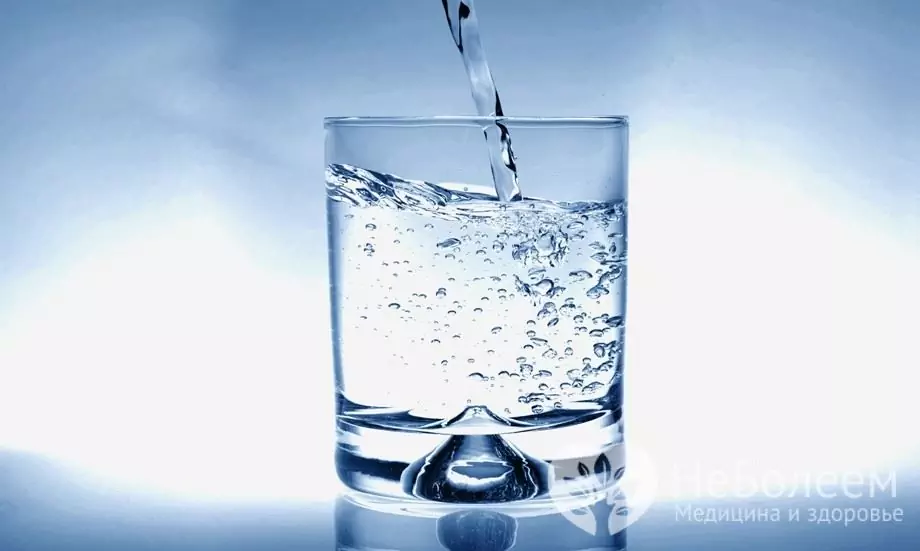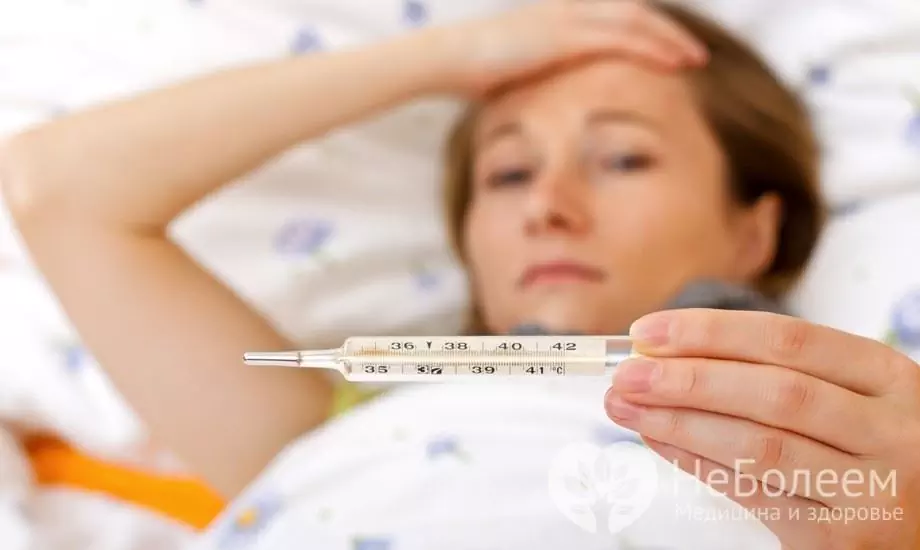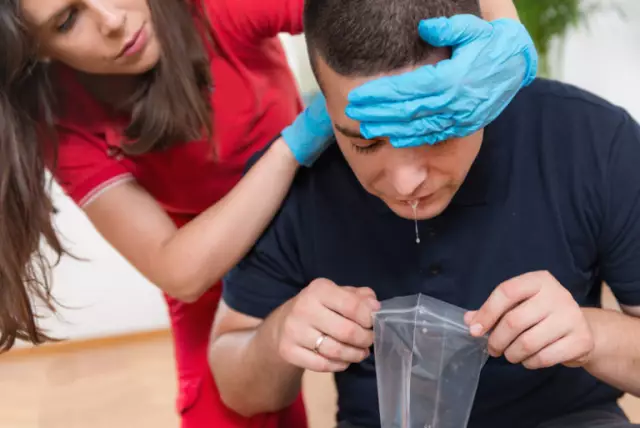- Author Rachel Wainwright wainwright@abchealthonline.com.
- Public 2023-12-15 07:39.
- Last modified 2025-11-02 20:14.
Poisoning by water
Water is one of the main substances that ensure the vital activity of the human body. A person can live without food for almost two months, but without water, death will come in a few days.

Source: depositphotos.com
But at the same time, water is fraught with danger for a person. It can be infected with pathogenic microbes, contain toxic substances. Drinking poor quality water can cause a variety of diseases. But even well-purified water, if abused, can cause serious illness.
How does water poisoning happen?
During the cycle in nature, water passes through layers of soil containing organic residues. As a result, water from any source contains pathogenic bacteria:
- colibacillus;
- cholera vibrio;
- typhoid bacteria.
If drinking water has not been fully purified, then these bacteria enter the human digestive system. In the course of their vital activity, they release toxins that affect the mucous membrane of the gastrointestinal tract, thereby causing the development of gastroenteric syndrome. In addition, toxins are absorbed into the bloodstream, spread throughout the body and lead to general intoxication.
Water in open springs often contains salts of heavy metals, pesticides, mineral fertilizers and other toxic substances. Consuming it without proper cleaning leads to poisoning.
Water poisoning can also occur when a person drinks an excessive amount of water in a short period of time. This leads to overhydration of body tissues, hyponatremia. Such poisoning is very dangerous, if the patient is not provided with urgent medical care, it can be fatal.
Poisoning symptoms
The symptoms of water poisoning are different and depend on what exactly caused it.
Cholera
The incubation period is short. The disease begins suddenly with diarrhea, followed by vomiting without nausea.
Stool with cholera very quickly loses its fecal character and becomes like rice water. The frequency of bowel movements reaches 20-25 times per day, due to which the patient develops severe dehydration, manifested by the following symptoms:
- increased thirst;
- dry mouth;
- hoarseness of voice;
- tachycardia;
- hypotension;
- decreased urine output;
- reduction of skin turgor.
Typhoid fever
The incubation period for this disease lasts about 14 days. And therefore, when its first symptoms appear, patients usually do not associate them with drinking water from a dubious source a few weeks ago.
You can suspect typhoid fever by the following signs:
- fever;
- pallor of the skin;
- decreased appetite;
- Strong headache;
- flatulence;
- diarrhea;
- lethargy of consciousness;
- roseola rash.

Source: depositphotos.com
Coli infection
This is a whole group of infectious diseases caused by various strains of E. coli. The manifestations are as follows:
- nausea;
- infrequent vomiting;
- cramping abdominal pain;
- subfebrile body temperature (up to 38 ° C);
- watery, profuse diarrhea.
Chemical poisoning
Poisoning with water containing toxic substances rarely has severe symptoms. Most often, such poisoning is associated with the ingress of wastewater into the water intake, which has not been properly treated due to accidents at treatment facilities. They are characterized by signs of damage to the gastrointestinal tract in the form of diarrhea and vomiting.
Chronic water poisoning is much more dangerous. It occurs when people use poor-quality water for a long time, and there may be no symptoms until the body's resources are exhausted. As a result, poisons gradually accumulate in the body, causing serious damage to internal organs, including oncological diseases.
Hyperhydration
In all of the above cases, the poisoning is caused not by the water itself, but by the pathogenic microbes or poisons it contains. Overhydration can be seen as true water poisoning. Her signs:
- chills;
- feeling hot;
- headache;
- nausea;
- vomiting;
- diarrhea;
- convulsions;
- lethargy of consciousness;
- coma.
First aid for poisoning
First aid for water poisoning differs significantly from similar measures carried out for other types of food poisoning.
Water is very quickly absorbed from the gastrointestinal tract, so it makes no sense to wash the stomach in this situation.
To bind toxins and pathogenic bacteria that have entered the body together with water, the patient should be given several tablets of Activated Carbon or any other drug with sorbing properties.
With severe diarrhea and vomiting, Rehydron solution should be given to drink in small sips, but only in cases where there is confidence that the symptoms of poisoning are associated with coli infection or cholera. During overhydration, the patient cannot be given water to drink!
First aid for overhydration consists of getting the victim to the hospital as quickly as possible or calling an ambulance. While waiting for the doctor, the patient should not be left alone, if he is unconscious - put on his side and provide fresh air.
When medical attention is needed
Given that water poisoning can lead to very serious consequences, when its first signs appear, an urgent need to consult a doctor.
The choice of treatment regimen depends on the specific cause of the disease. So with coli infection, cholera and typhoid fever, the patient is hospitalized in the infectious diseases department. He is prescribed antibiotics and detoxification and symptomatic therapy.
The development of overhydration is an indication for emergency hospitalization of the patient in the intensive care unit. In this case, treatment is aimed at correcting the water-electrolyte balance and, first of all, at normalizing the sodium concentration in the blood serum.
Possible consequences
All types of water poisoning pose a danger to human life and health. But the most dangerous are overhydration and infection with cholera (it belongs to the group of especially dangerous infections).
With overhydration, the patient may develop pulmonary or cerebral edema, acute cardiovascular and respiratory failure. These critical conditions, in turn, can be fatal, even with adequate therapy.
Cholera can cause the development of severe dehydration, up to hypovolemic shock, which requires intensive treatment in the intensive care unit.
Prevention
Preventing water poisoning is much easier than treating its effects. To do this, follow the rules:
- never drink water from an unknown source;
- buy bottled water only from well-known manufacturers at official points of sale;
- use filters for tap water;
- control fluid intake, especially in cases where thirst is increased, such as during intense exercise or during hot seasons.
YouTube video related to the article:

Elena Minkina Doctor anesthesiologist-resuscitator About the author
Education: graduated from the Tashkent State Medical Institute, specializing in general medicine in 1991. Repeatedly passed refresher courses.
Work experience: anesthesiologist-resuscitator of the city maternity complex, resuscitator of the hemodialysis department.
The information is generalized and provided for informational purposes only. At the first sign of illness, see your doctor. Self-medication is hazardous to health!






